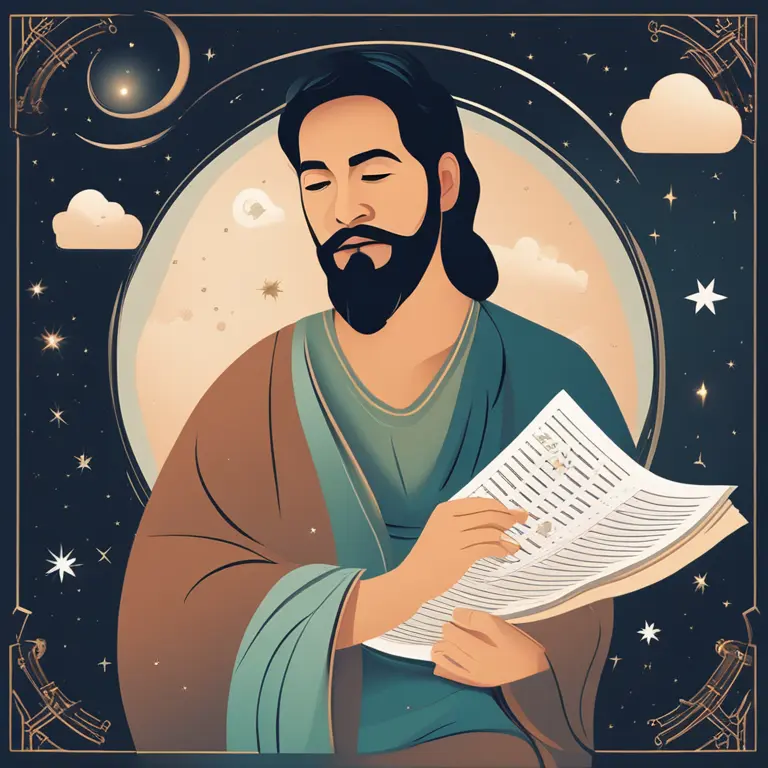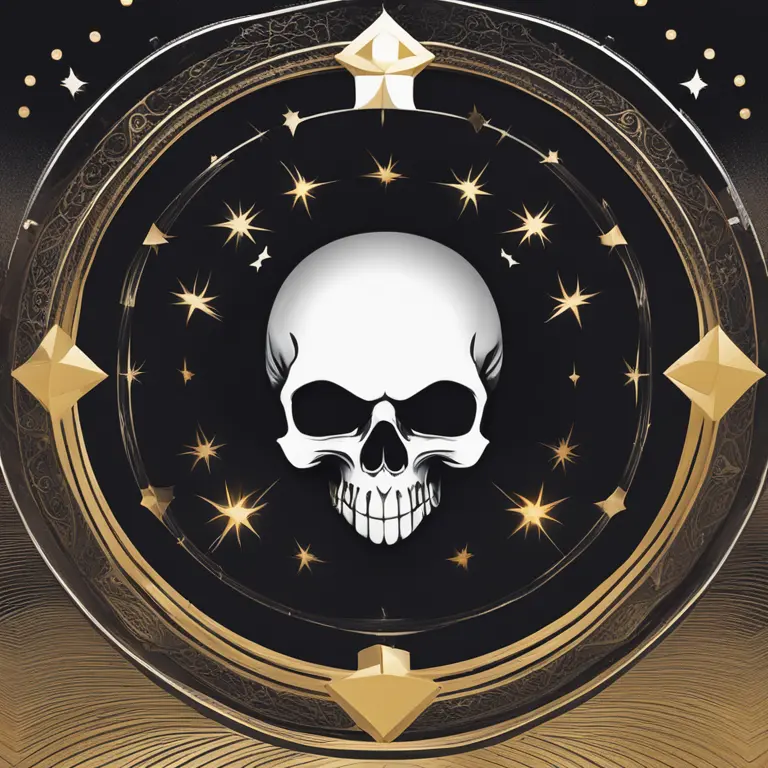
Birth Chart & Life's End Predictions
Investigate the contentious subject of whether astrological birth charts hold clues to one's mortality, examining astrology’s stance on life's finale.
article by Priya Deshmukh
Ancient Practice Meets Modern Skepticism
Astrology has long fascinated humanity, offering insights into personality traits, life events, and even compatibility between individuals. But when it comes to the question of predicting one's death, astrology enters a realm of both solemn curiosity and profound skepticism. Predating modern science, astrology was once integral to medical diagnoses and prognoses, with celestial events guiding predictions about a person's health and longevity. Yet in our modern era, the reliability of these predictions, especially concerning something as definite and non-negotiable as death, is often contested by the scientific community.

The Limits of Astrological Prediction
Astrologers themselves may have varying opinions on the matter: some hold that a birth chart can indeed offer clues about the potential circumstances surrounding a person's passing, while others caution that astrology is not a tool for determining exact lifespan. A responsible astrologer is more likely to use a birth chart as a means of encouraging clients to embrace life fully, rather than focus on an inevitably shared fate. Such ethics prevent astute astrologers from making precise predictions about death, a stance that respects both the unpredictability of life and the psychological impacts of fatalistic forecasts.

Mars, Saturn, and the Eighth House
Within the astrological community, certain placements in a birth chart are historically believed to signify challenges that could potentially shorten a lifespan. Mars, associated with conflict and aggression, and Saturn, symbolizing restriction and challenges, are two planets that may be investigated for their positions and aspects. More specifically, the Eighth House, governing transformation and regeneration, is often scrutinized for clues regarding mortality. However, even when these celestial indicators suggest difficulties, they are typically interpreted as signposts for caution and growth rather than definitive markers of demise.

Death as Transformation
In modern astrology, death is often viewed metaphorically rather than literally. Planetary transits that once would have been associated with physical death are now seen as symbols of 'end of chapters' or significant changes in one's life. Understanding that life is a cycle of transformation, astrologers analyze the birth chart to provide insights on periods of significant transition, personal evolution, and psychological rebirth, steering clear from morbid prophecies and instead emphasizing personal empowerment and resilience through forewarned periods of change.

The Role of Free Will
A pivotal aspect in contemporary astrology is the emphasis on free will. Even if a birth chart were to suggest severe challenges that could lead to dangerous situations, it's the choices and actions of the individual that can ultimately alter the course of their life. This factor is an important reminder why astrologers and those interested in astrology should approach the art with a mindset focused on guidance and self-awareness, rather than deterministic predictions.
Conclusion: Astrology as a Guiding Tool
While the question of whether astrology can predict death remains controversial, the practice continues to serve as a symbolic guide rather than a soothsayer's crystal ball. Ethical astrologers aim to empower individuals with insights and contemplation, fostering a journey of self-discovery and conscious living, which in turn can lead to a richer, fuller life experience, irrespective of the length of that journey.
Published: 1/22/2024
Modified: 1/22/2024
More predictions
Come back here soon to learn more about yourself and your future


Moon Phases & Their Astrological Meaning
Discover the mystical meanings behind the moon's phases and how they influence astrology and personal growth.


Moon Phase Calendar For 2024: A Guide
Dive into the lunar journey of 2024 with our Moon Phase Calendar, guiding your astrology practices and syncing with the celestial rhythms.


The Lunar Cycle & Its Impact on Life
Discover how moon phases impact daily life, personal growth, and more in our guide to the lunar cycle's significance.